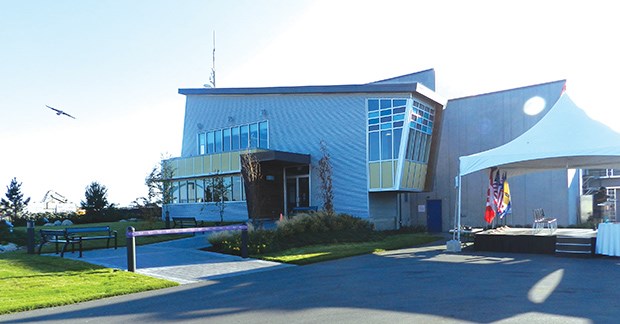Can you smell it? It’s in the air again.
Apart from mega homes and Chinese-only signs, complaints about the recycling plant on No. 7 and Blundell roads have taken up their fair share of space in our letters pages over the past six months.
Some folks have complained about suffering migraines because of the poor air quality, others talked about being held captive in their own homes to avoid the overpowering smell.
I live in Steveston and can’t say I’ve ever really noticed the smell, but I don’t doubt others do, and if people are suffering, there’s reason to change.
Harvest Power claims it’s a victim of its own success. As municipalities around the Lower Mainland have introduced the organic recycling program, the incredible volume Harvest Power now has to deal with is what’s creating a stink. However, the company, also admits it has “dropped the ball” on the odour control file, and says it is now implementing some changes.
Obviously, we are on the right track with the recycling, and lots of it. We know too much about climate change to go back to throwing our veggies in the trash with our catfood cans and cereal boxes. But it’s also unacceptable, not to mention unhealthy, to be inhaling fumes from this kind of operation.
Metro Vancouver, which issues the permit to Harvest Power, agrees the company is making some modifications, but it also says more could be done. Although this kind of organic recycling plant is the first of its kind around here, we are decades behind many European countries when it comes to recycling, and it’s hard to believe they’re all walking around with nose plugs.
The key is cost. Harvest Power is a for-profit company, and while it may like the idea of saving the planet, its first objective is to make money, and purchasing cutting-edge technology to reduce odour may also reduce the company’s bottom line.
However, if Harvest Power thinks upgrading the plant to effectively deal with the odour will undermine its economic viability, so be it. They can move on. In fact, it might be argued this is a job better suited to municipalities anyway, or some kind of not-for-profit where the primary goal is to provide service.
The fact is, we have to recycle our organic waste. At this point, it’s inexcusable to do anything but. It’s also a fact people have the right to breath clean air. If the mantra of “economic viability” is tripping us up on either point, we need to look at a different model, a model where the objective is something richer than profit.



